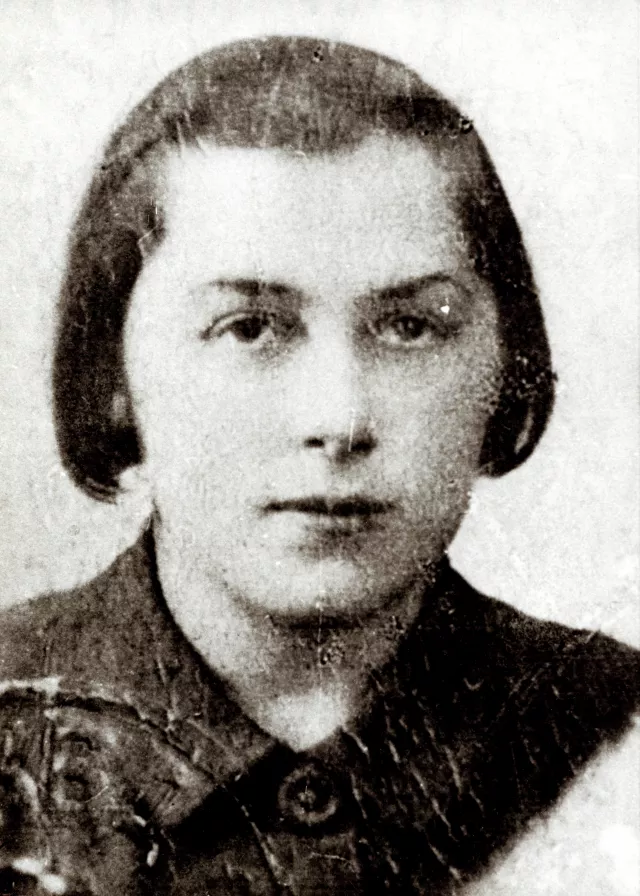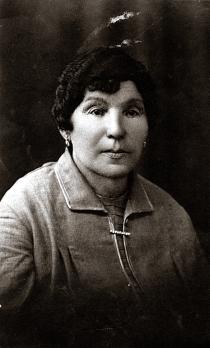Janina Duda
That's me. The photo was taken during the war, in 1940, I suppose, but I don?t remember exactly where and when.
When in 1941 the Germans entered Bialystok, me and my friend, Grzegorz Lewi, we decided to leave Bialystok together. I recalled an event from childhood: I was playing hopscotch in the backyard and someone came and asked about the owners, the Rozycki family. And I showed them and told them. Mr. Rozycki then told this to my parents and said that they noticed the little girl, so outgoing and asked about her. 'And she's Jewish?' They were surprised! Because I'm not very Jewish in my appearance. Really.
So once, after already after the Germans had come, I met some buddies of mine who worked in that tile factory in Antoniuk, Wacek Dziejma, Marian Wolniewicz and some others, on the street. And Marian told me: 'Listen Janina, you're still having doubts, run off to the countryside, you'll wait out the war and that's it, look at yourself, don't stay in Bialystok.' So I thought that perhaps I really should leave the town and change my Jewish name. We got to Bielsk Podlaski, 150 km east of Warsaw, where my husband's family lived, they gave us some food, but we had to go on. We both decided to change names in Bielsk. Grzegorz found some Soviet identification card of a Ukrainian, he corrected the date of birth, put in his photograph, this was amateur work, but somehow during the war it was enough. So he became Ivan Carycynski, born in Stanislavyv.
In Bielsk Podlaski we spent the night at a woman's house, the notary's wife. Her husband wasn't home. She gave us a room, some straw, a sheet. There was a large orchard there. And because it was summertime we filled up on fruit. And, what's interesting, I went to the mayor of the city, he was a senator. Erdman, I remember this name. So I asked him for an identity card and hid my Soviet one. He asked for my name, I gave my chosen last name, Zurek, and he asked them to put on my identity card 'born in Vawkavysk.?
Why in Vawkavysk? Because they had no identity cards there. What I mean is that in 1939 Soviet officials issued identity cards, but only to people who were born in a given town. But they wouldn't issue identity cards to refugees from central or western Poland. That was because they claimed they didn't know them and they would have to be checked. If they wanted to live in the interior of Russia, they could do so, but they were afraid to have them near the border. They thought they might be spies or something. So if I said I was from Bialystok, they would say, 'Dear child, but where's your passport?'
And so I said Vawkavysk, because Vawkavysk was burned down during the first military activities? I listed an area where there was no documentation and they could control me however long they wanted to and they still wouldn't find anything. You have to be clever, when your life's at stake. I said we were going to Stanislavyv, to my fiancé's family and it's very difficult to get anywhere without an identity card in wartime. The official didn't want to issue anything, but Erdman told him to. So I now honor the ashes of those people who were so wise and decent then.





















